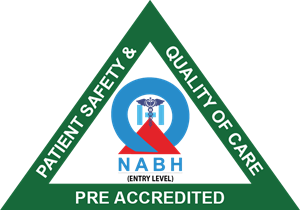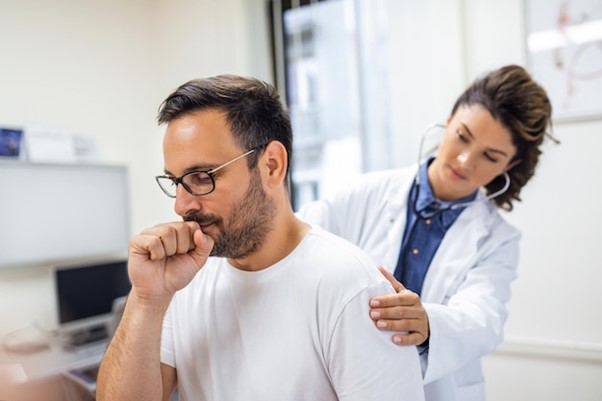What is Pneumonia?
Pneumonia is a severe infection in the lungs caused by various pathogens such as bacteria, viruses, and fungi. When these microorganisms enter the lungs, they cause inflammation, leading to the swelling of lung tissue and accumulation of fluid or pus in the alveoli (air sacs), making it difficult for the lungs to oxygenate the blood.
Types of Pneumonia:
- Bacterial Pneumonia: The most common and severe type, which requires hospitalization and treatment with antibiotics.
- Viral Pneumonia: Caused by viruses like influenza or COVID-19, it tends to resolve on its own, but in severe cases, antiviral medications might be necessary.
- Fungal Pneumonia: Less common, typically occurring in people with weakened immune systems.
- Aspiration Pneumonia: It occurs when food or liquid is inhaled into the lungs, resulting in an infection.
Pneumonia can affect one or both lungs. When both lungs are infected, it is called bilateral pneumonia.
What are the Symptoms of Pneumonia?
The symptoms of pneumonia can range from mild to severe and can vary depending on the cause of the infection.
Bacterial Pneumonia Symptoms:
- High fever (up to 105°F or 40.55°C)
- Cough with green, yellow, or bloody mucus
- Shortness of breath and rapid breathing
- Chest pain, especially with deep breaths or coughing
- Fatigue, confusion, or altered mental state
- Bluish skin, lips, or nails due to lack of oxygen
- Rapid heartbeat and chills
- Viral Pneumonia Symptoms:
- Dry cough
- Fatigue and weakness
- Headache and muscle pain
- Fever (usually less intense than bacterial pneumonia)
- Difficulty breathing in severe cases
- Symptoms in Children and the Elderly: Babies and young children may experience additional symptoms like grunting while breathing, difficulty feeding, or excessive fussiness. Older adults may exhibit milder symptoms, like fatigue and low appetite, but could also experience confusion or a sudden change in mental state.
If you experience symptoms such as difficulty breathing, chest pain or a high fever, seek medical help immediately.
How is Pneumonia Diagnosed and Treated?
Diagnosis: The doctor will typically diagnose pneumonia through a combination of physical exams and tests. The following are commonly used:
- Chest X-rays: To examine lung infection and inflammation.
- Blood Tests: To identify the type of infection causing pneumonia.
- Sputum Test: To analyze mucus or sputum from coughing for the presence of pathogens.
- Pulse Oximetry: Measures blood oxygen levels.
- Bronchoscopy: In some cases, a camera is inserted into the lungs to detect infection.
Treatment:
Treatment for pneumonia largely depends on the type of infection and the severity of the condition. Common treatment methods include:
- Bacterial Pneumonia: Treated with antibiotics. The choice of antibiotics may depend on the type of bacteria and their resistance to drugs.
- Viral Pneumonia: Typically self-resolving but may require antiviral medications like oseltamivir (Tamiflu®) for flu-related pneumonia.
- Fungal Pneumonia: Treated with antifungal medications.
- Oxygen Therapy: If the infection causes difficulty in breathing, supplemental oxygen may be provided.
- IV Fluids: Given if you are dehydrated or need fluid replacement.
In severe cases, when fluid accumulates around the lungs or when the infection becomes more widespread, surgical interventions may be needed. Pneumonia patients with severe conditions or complications might need hospitalization for close monitoring.
Recovery: If the infection is treated early, many people recover within a few weeks. However, some individuals may experience lingering fatigue and cough even after the infection has cleared.
Who is Most at Risk for Pneumonia?
Pneumonia can affect anyone, but some individuals are at higher risk, including:
- Age: Children under the age of 2 and adults over 65 are more vulnerable due to their weaker immune systems.
- Chronic Health Conditions: Those with lung conditions like asthma, chronic obstructive pulmonary disease (COPD), or heart disease are at a higher risk.
- Weakened Immune System: Individuals undergoing chemotherapy, those with HIV/AIDS, or those who have recently had an organ transplant are more susceptible.
- Smoking: Smoking damages the lungs, making it easier for infections to take hold.
- Neurological Conditions: People with conditions such as Parkinson’s disease, stroke, or dementia may be at risk of aspiration pneumonia due to swallowing difficulties.
- Hospitalized Individuals: Patients who are in the hospital, particularly in intensive care units or on mechanical ventilation, are more likely to develop ventilator-associated pneumonia (VAP).
How Can Pneumonia be Prevented?
While not all cases of pneumonia can be prevented, there are several steps you can take to reduce the risk:
- Vaccination:
- Pneumococcal vaccines (Pneumovax23® and Prevnar13®) help protect against bacterial pneumonia.
- Flu Vaccine: Annual flu vaccinations reduce the risk of pneumonia caused by influenza.
- COVID-19 Vaccine: Reduces the risk of severe pneumonia related to the coronavirus.
- Healthy Habits:
- Quit Smoking: Smoking damages lung tissue and weakens the body’s ability to fight off respiratory infections.
- Regular Handwashing: Wash your hands frequently to avoid transferring harmful bacteria or viruses to your respiratory system.
- Avoid Close Contact with Sick People: Pneumonia can develop after contracting the flu, cold, or COVID-19, so try to avoid exposure to individuals with these illnesses.
- Healthy Lifestyle: Eat a balanced diet, exercise regularly, and get plenty of rest to keep your immune system strong.
Why Choose Shishira Hospital for Pneumonia Care?
At Shishira Hospital, we prioritize your health and well-being. Our team of experienced doctors and specialists is equipped with advanced diagnostic tools to ensure accurate and quick identification of pneumonia. Whether it’s bacterial, viral, or fungal pneumonia, we offer tailored treatment plans, including antibiotics, antivirals, and supportive therapies, to help you recover as quickly as possible.
With a dedicated team and state-of-the-art facilities, we are committed to providing comprehensive care for pneumonia patients. If you’re experiencing symptoms of pneumonia, don’t wait—get in touch with Shishira Hospital today for expert diagnosis and treatment.
Contact Us Today for Expert Care
If you’re concerned about pneumonia, seek professional medical advice at Shishira Hospital. Our specialists are here to guide you through diagnosis, treatment, and recovery to ensure the best possible outcome.
Call now for more information or to schedule an appointment. Your health is our priority!



